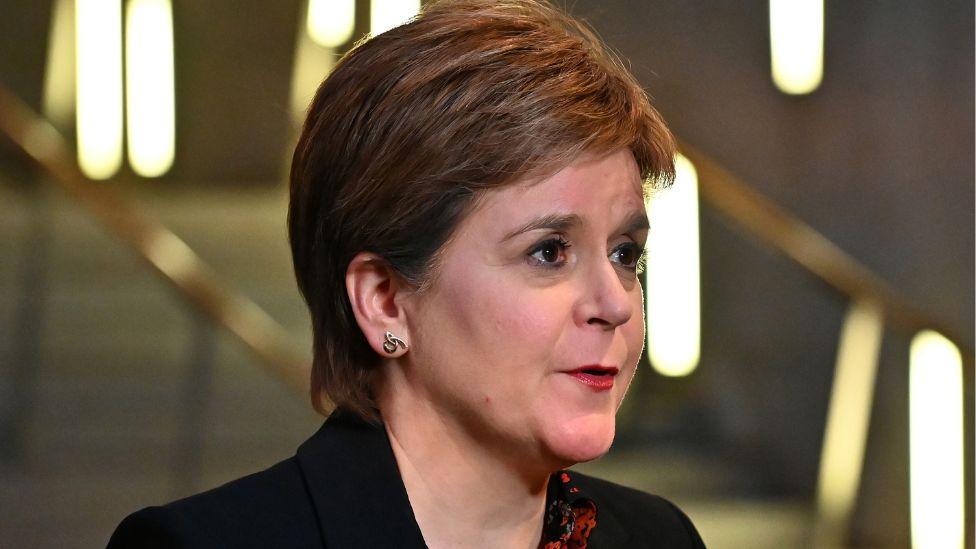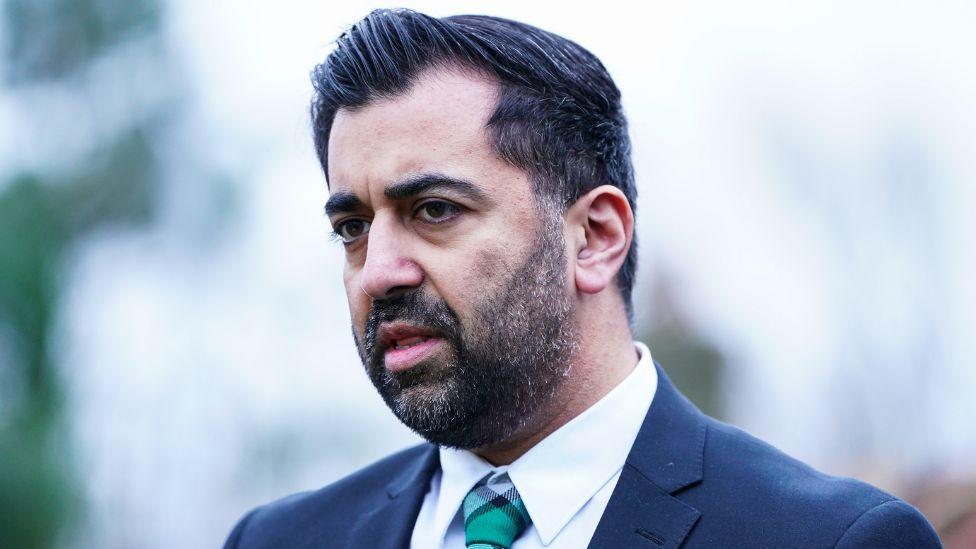Nicola Sturgeon warns flagship care plan may not be meeting goals
- Published

Former First Minister Nicola Sturgeon introduced The Promise to help care-experienced people
Nicola Sturgeon has admitted her flagship plan to help children in care in Scotland is at risk of failing to deliver effective change.
The ex-first minister told a BBC podcast that "vested interests" were pushing back against her reforms.
The scheme launched during her time in office, external, known as The Promise, was designed to improve the lives of care-experienced children and young people.
But she has raised concerns the programme is not meeting its aims.
Ms Sturgeon, now a backbench MSP, vowed to hold the Scottish government to account to ensure the plan is delivered properly.
The former FM, who stepped down in March last year, released an 80-step plan, external to improve the care system in 2022.
It included plans to end the placement of under-18s in custody in favour of "care-based alternatives". It also said the approach would shift from "one of punishment to one of love and support".
Other proposals, which were to be implemented by 2030, included a national allowance for foster and kinship carers as well as a redesign of the children's hearings system and the governance of the care system.
It accepted the findings of the Independent Care Review, external in 2020, which said many young people experienced a "fractured, bureaucratic and unfeeling" system.
But speaking to the BBC podcast Fixing Britain, Ms Sturgeon agreed the plan had suffered from an implementation gap between the aspirations of the policy and the impact on children in care.
'Do it better'
She said there was an "inevitability" that the policy would take longer to implement than ministers had initially wanted but warned it was being opposed by "vested interests".
"There will be a sort of push back and a backlash and a sense of inertia and sometimes inertia makes it sound more passive than it actually is," Ms Sturgeon told the podcast.
"What we've also got is an incredible sense of people wanting to do it better."
She said it would be "unthinkable" for The Promise not to be delivered and said she was determined to continue to lobby for its delivery.
"Even if that means holding my own party to account on this I will do that because having made a long-term promise you've got to stick with it," the former SNP leader said.
Her successor Humza Yousaf has said the government, external remained committed to delivering The Promise by 2030, ensuring that "care experienced children and young people grow up safe, loved and respected".

First Minister Humza Yousaf says his government is committed to the reforms
A government spokesperson said "clear progress" had been made.
"The Scottish government is delivering on a range of aspects of The Promise including ongoing work to implement changes to the children's hearings system, £6m being invested in the first Bairns' Hoose Pathfinders, and funding for the new Scottish Recommended Allowance for foster and kinship carers," they added.
Megan Moffat, from Who Cares? Scotland, said that despite cross-party support, the plan had failed to deliver meaningful change.
"Often it's changing the language on something rather than changing the practice," she told the Fixing Britain podcast.
"For example, instead of calling it sibling contact we're changing documents to call it family time so that it's more accessible to kids. But what we're not actually doing is upholding the rights of brothers and sisters not to be separated in care.
"So we really need to have a look at what we're doing and how we get this back on track because we're already four years into a 10-year implementation plan."
Scottish Conservative deputy education spokeswoman Roz McCall said vulnerable children were "paying the price" for inaction.
"Nicola Sturgeon might not be fronting up The Promise any longer, but Humza Yousaf cannot continue to let Scotland's children down and must urgently outline how it will be delivered, four years on from when it was first pledged," she said.